SUMMARY
This is AI generated summarization, which may have errors. For context, always refer to the full article.
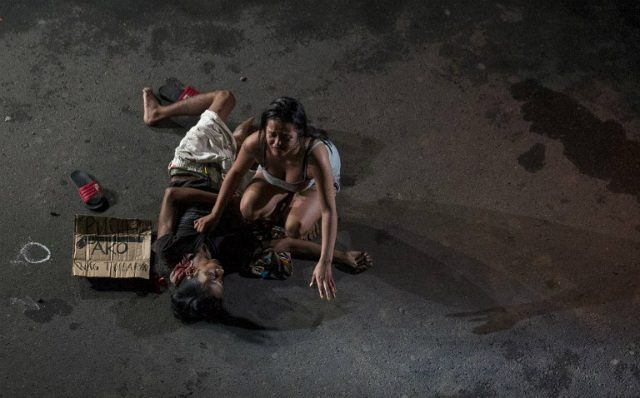
Two surveys conducted in December 2016 painted different pictures about public support for President Rodrigo Duterte’s war on illegal drugs, his centerpiece campaign promise now linked to thousands of deaths.
Last week, the police issued a press release to share a Pulse Asia survey showing majority of Filipinos saying they feel safer because of the police campaign. The cops saw the poll in one of the slides presented by Pulse Asia executive director Ana Tabunda in a security forum in March. They used it to defend their operations amid growing criticism in the media and international community.
But a survey conducted by rival polling firm Social Weather Stations (SWS) around the same time in December showed a different picture. It showed majority of Filipinos saying the drugs war got them feeling worried about their safety and their family’s. The results were released in January.
What gives?
The numbers are 4 months old, but the opposing results help us understand how the public looks at Duterte’s anti-drugs war, especially as new polls show his approval and trust ratings remain high.
It also shows the limitations of surveys when it comes to measuring public perception on highly divisive issues.
Pulse Asia: Neighborhoods are safer

Pulse Asia heard the story of a woman from the slums of Payatas, Quezon City, raving about President Duterte’s war against illegal drugs.
“Wala nang tambay (No more idlers),” Tabunda quoted to Rappler the unnamed woman who felt that Payatas – despite its share of the bloodbath – is safer because the addicts had been driven out of the streets.
The polling firm decided to test if the woman’s sentiment is shared by the public nationwide. In its December 2016 poll, the survey firm asked how much the public agreed with the statement: “Kumpara noong nakaraang taon, sa pakiramdam ko ay mas walang panganib ngayon sa aming lugar dahil sa kampanya laban sa iligal na droga (Compared to last year, I feel that it is less dangerous now in our place because of the campaign against illegal drugs).”
The response was overwhelming. Up to 81% of the respondents found their neighborhoods are “less dangerous” – the sum of 25% saying they “very much agree” with the statement and another 56% saying they “agree.”
There was 15% who could not make up their minds (“may agree or may disagree) and only 4% said they “disagree.”
SWS: Filipinos are worried about EJKs
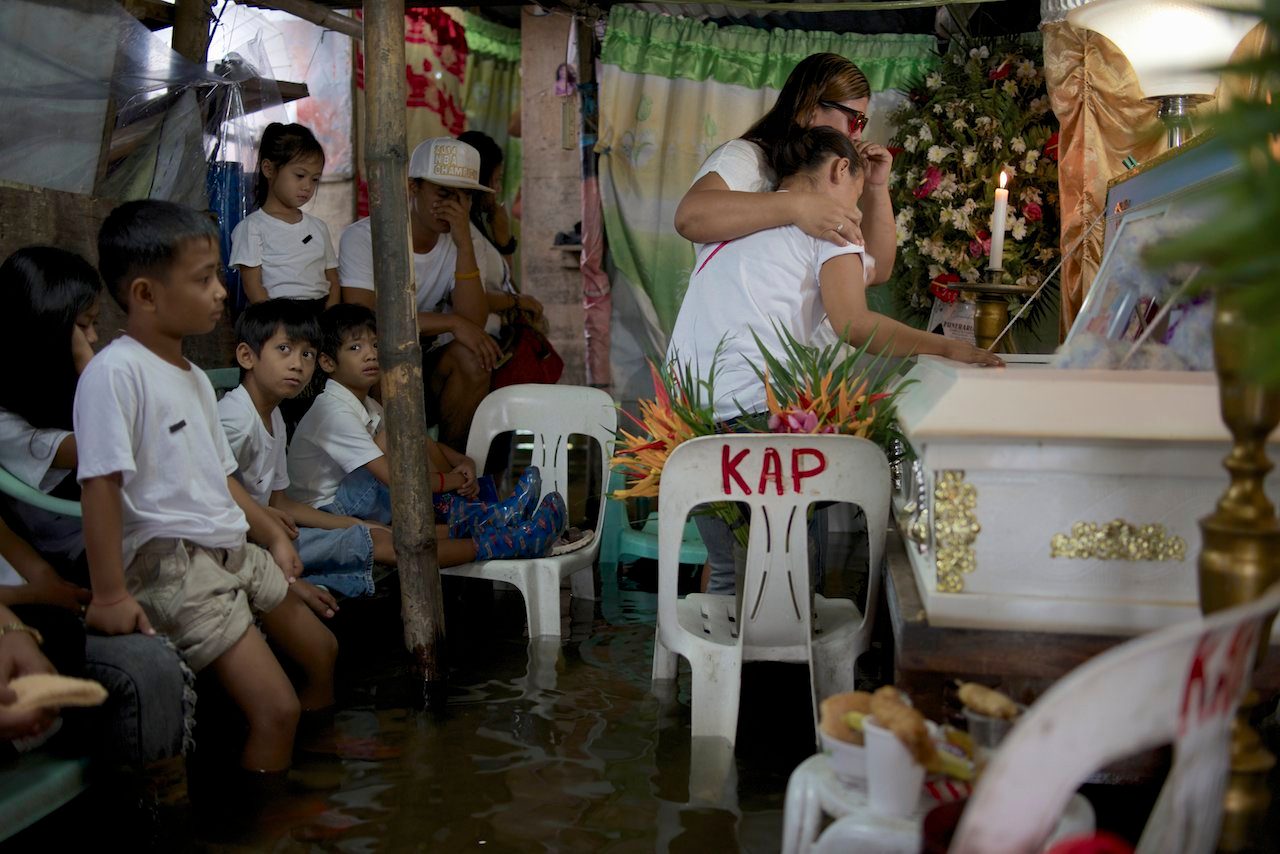
Around the same time in December, SWS also went around the country to test public perception on Duterte’s drugs war.
It asked survey respondents: “Gaano po kayo nangagamba na kayo o sino mang kilala ninyo ay making biktima ng Extra Judicial Killing o EJK. Kayo po ba ay…. (How worried are you that you or someone from your family will become a victim of extra judicial killing or EJK. You are…)”
Contrary to the findings of Pulse Asia, the respondents to the SWS survey said the drugs war did not make them feel safe.
Eight in 10 Filipinos or 78% expressed substantial worry – the sum of 55% saying they were “very worried” and another 33% saying they were “somewhat worried.” Some 10% said they are “not too worried” and only 12% said they are “not worried at all.”

On hindsight, Pulse Asia’s Tabunda said they could have drafted the survey options better. She said an option should have been added to let the respondents say that the security situation in their neighborhoods are “the same as” last year.
But would Pulse have gotten a very different result using the same question? Probably not.
Mixed answers in Pulse, SWS surveys
Public perception of the drugs war gets more interesting if one looks at responses to related questions the polling firms asked during the same period.
In December, for example, Pulse Asia also asked respondents to agree or disagree with the statement: “In this neighborhood, people are usually afraid to walk in the street at night because it is dangerous.”
Up to 33% agreed, with the sum of 5% saying they “very much agree” and 28% saying they “agree.” A big percentage of 19% could not decide. But most, or 48%, disagreed, with the sum of 36% saying they “disagree” and 12% saying they “very much disagree.”
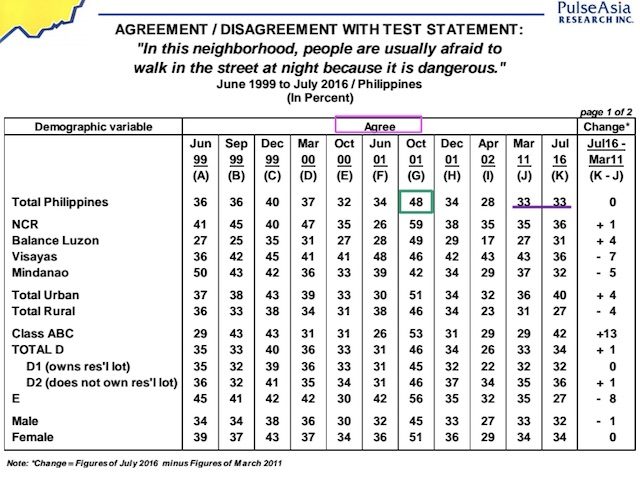
Put together, the results of the two Pulse Asia survey questions can be interpreted that 8 in 10 (81%) Filipinos claim to feel safer because of the drugs war but, actually, only 3 of them (33%) consider the streets are dangerous in the first place.
Dig up the numbers 5 years ago and it would show that the percentage of Filipinos who felt that the streets are dangerous is unchanged. In March 2011 and in December 2016, 33% of the respondents said they “agree” that the streets are dangerous.
Responses to SWS questions raise questions, too. While 8 in 10 Filipinos told SWS they were worried about the killings, an equal number of Filipinos (85%) said they approved of the drugs war, the sum of 53% who said they were “very satisfied” and 32% who said they were “somewhat satisfied.”
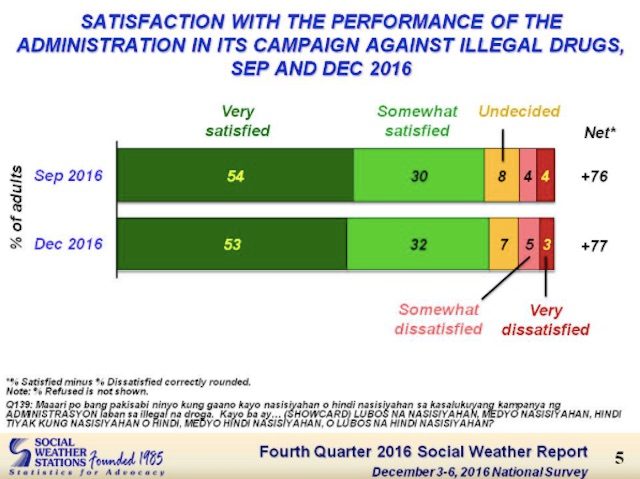
Duterte’s popularity, media war
How do we reconcile the responses?
The numbers supporting the drugs war in both Pulse and SWS noticeably mirror Duterte’s approval ratings during the same period – 8 in 10 Filipinos gave him good marks. Pulse recorded his approval rating at 83% while SWS recorded his satisfaction rating at 77%.
The numbers suggest a feedback loop.
Duterte, who showed a come-from-behind-victory in the 2016 presidential elections, campaigned on a platform of fighting worsening criminality, which he said is caused by illegal drugs. The politician who didn’t conform to the traditional mold of a Manila politician captured public support despite of – and probably because of – his violent solutions and constant cursing.
Duterte’s popularity appears to rest on his drugs war. Support for the drugs war appears to rest on the President’s popularity. It’s essentially personality politics.
Tabunda says the drugs war does not appear to be a “gut issue” for the majority of Filipinos, who are generally more concerned about their economic situations.
There is no empathy for the victims – up to 8,000 as of March – who make up .01% of the population.
What makes a gut issue?
This brings us back to the questions that Pulse and SWS asked the respondents and how the public may have understood them.
Pulse asked a question that expressly mentioned government operations against illegal drugs, a campaign that is very closely associated with Duterte. The other questions that mentioned the drugs war also recorded public support for the campaign.
In comparison, SWS did not mention the drugs war in the specific question about extra-judicial killings. SWS may have also turned the question into a gut issue when its asked its respondents to think of the possibility that they or their families could become victims.
Perhaps it’s still the honeymoon stage, but the numbers really show that the public is behind Duterte and his campaigns.
But the bigger question is why? This is a question that surveys will not adequately answer. Tabunda says focus group discussions (FGD) is the way to go, albeit an expensive research method.
If you’re still unconvinced, look at public support for death penalty and how it changed almost overnight when Duterte became president.
In July 2016, up to 81% of Filipinos said they support the imposition of death penalty on heinous crimes. Only 11% disagreed. The other 8% were undecided.
It’s a great leap from years ago, in November 2012, when 55% supported death penalty.
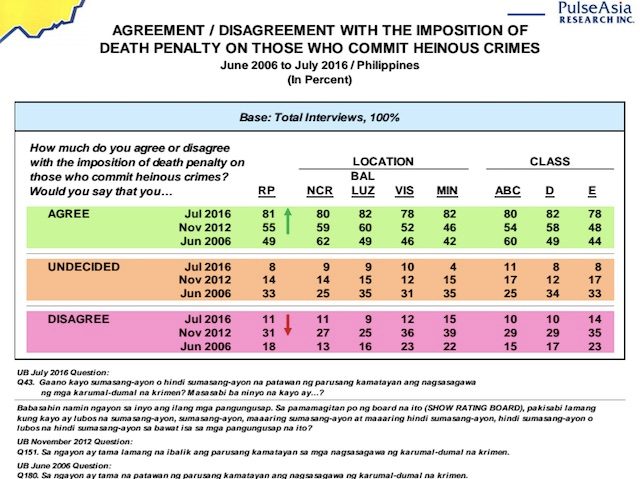
Surveys only capture public perception. It is, above all, a media game.
The President takes the podium at every opportunity to tell the public why his drugs war is important. He parries criticism every step of the way and discredits anyone and everyone who tries to get in the way.
His speeches are broadcast on social media while practically all the media institutions bring his message to the crowd.
It’s no surprise why he’s winning. – Rappler.com
Carmela Fonbuena has an MA in Political Communication from Cardiff University in the UK. She studied polling and public behavior.
Add a comment
How does this make you feel?
There are no comments yet. Add your comment to start the conversation.